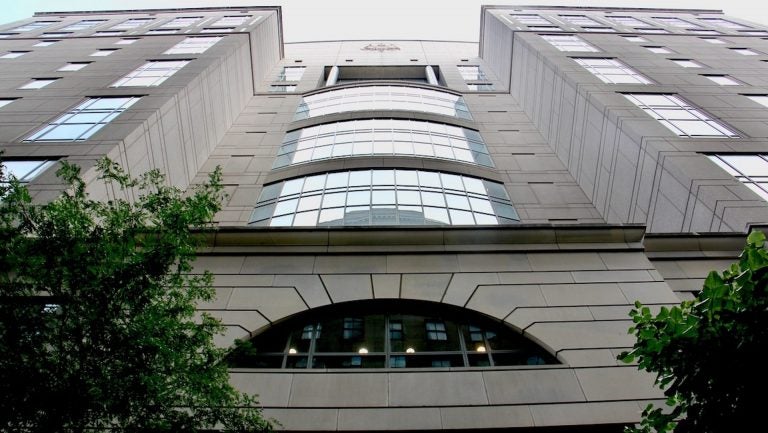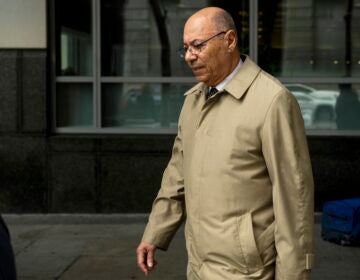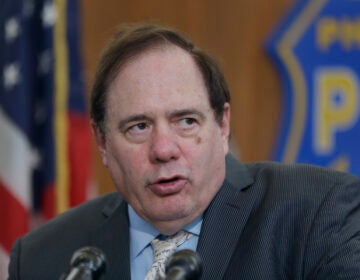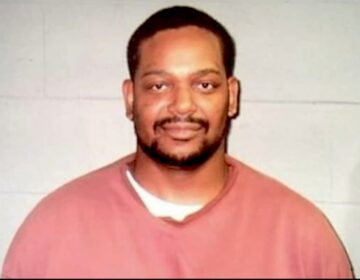Federal judge: Philly courts must record bail hearings
Historically, these proceedings have effectively occurred off-the-record. There’s no stenographer and the public isn’t allowed to record what happens.

Philadelphia's Criminal Justice Center. (Emma Lee/WHYY)
A federal judge has ruled that it’s unconstitutional for Philadelphia’s First Judicial District to bar recordings of bail hearings.
These proceedings, also known as preliminary arraignments, are held within 24 hours of a suspect being arrested and effectively occur entirely off-the-record inside a basement courtroom at the Stout Center for Criminal Justice at all hours of the day.
There is no stenographer in the room. And while the public can observe, they’re not allowed to record what takes place during these consequential hearings, which determine whether a defendant will be released on bail or await trial behind bars.
In his ruling, U.S. District Judge Harvey Bartle III says that violates the First Amendment “in so far as they prohibit the public to audio-record bail hearings.”
A spokesman for the First Judicial District declined to comment on the ruling. But advocates say it will shine some much-needed sunshine on what’s been a dark corner of the city’s criminal justice system.
“If you wanted to actually see how these decisions were being made, you basically had to go into the basement of this courthouse and sit there and watch and hope that you can see a few hearings,” said Nicolas Riley with Georgetown University Law Center’s Institute for Constitutional Advocacy and Protection, which filed the federal lawsuit in July on behalf of the nonprofit Philadelphia Bail Fund.
Bartle’s ruling only applies to bail hearings. It gives the First Judicial District 45 days to start making official recordings and transcripts available to the public, or allow people to make their own audio recordings.
Audio recordings will still be barred in other courtrooms in the Stout Center. Riley said he hopes that will change as a result of this decision, as bail magistrates get comfortable with the new standard.
“We’re hoping that this decision will help bring some greater attention to the issue of court transparency and the importance of allowing the public to really understand and document what’s happening inside their courtrooms,” said Riley.
There are roughly 40,000 to 60,000 bail hearings in Philadelphia each year.
WHYY is your source for fact-based, in-depth journalism and information. As a nonprofit organization, we rely on financial support from readers like you. Please give today.





